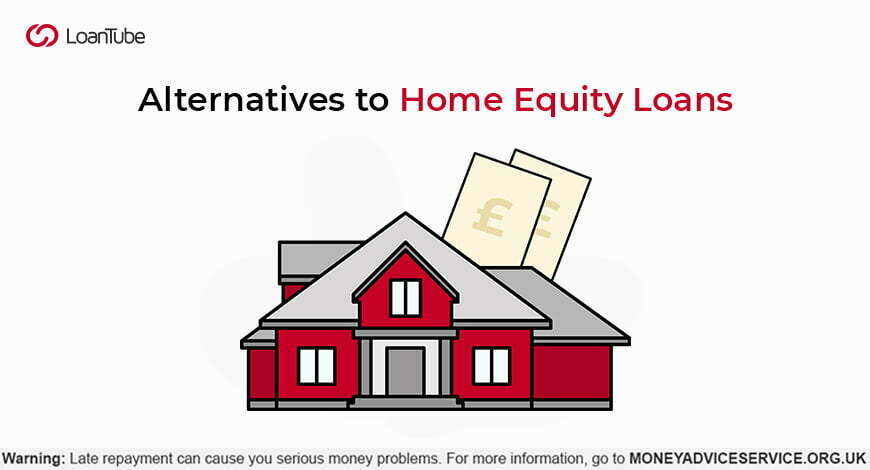What is a Home Equity Loan and How Does it Work?
A home equity loan is a type of loan that allows homeowners to borrow against the value of their property. It is a secured loan, meaning that the lender uses the equity in the home as collateral. Home equity loans are often used to finance major expenses, such as home renovations, debt consolidation, or large purchases. They can also be used to tap into the value of a home to access cash for other purposes.
There are two main types of home equity loans: lump-sum loans and lines of credit. A lump-sum loan provides a single payment of a fixed amount, while a line of credit allows borrowers to draw on the loan as needed, up to a maximum amount. Both types of loans offer a fixed interest rate and repayment terms, typically ranging from 5 to 15 years.
Home equity loans can be an attractive option for homeowners who need access to cash, but it’s essential to understand how they work and the potential risks involved. Borrowers should carefully consider their financial situation, credit score, and loan options before applying for a home equity loan. By doing so, they can make an informed decision and avoid potential pitfalls.
For those wondering “how much home equity loan can I get,” the answer depends on several factors, including the value of the home, the amount of outstanding mortgage debt, and the lender’s loan-to-value ratio requirements. Generally, lenders will allow borrowers to tap into up to 80% of their home’s value, minus any outstanding mortgage balances.
For example, if a homeowner has a $200,000 home with a $100,000 outstanding mortgage balance, they may be able to borrow up to $60,000 ($200,000 x 0.80 – $100,000). However, this amount can vary depending on the lender and the borrower’s individual circumstances.
It’s also important to note that home equity loans can have tax implications, and borrowers should consult with a tax professional to understand the potential impact on their tax situation.
In summary, a home equity loan can be a valuable tool for homeowners who need access to cash, but it’s crucial to understand the terms, risks, and potential implications before applying. By doing so, borrowers can make an informed decision and use their home’s equity to achieve their financial goals.
How to Determine Your Home’s Equity Value
Determining the equity value of your home is a crucial step in understanding how much you can borrow with a home equity loan. Equity value is the difference between the current market value of your property and the outstanding mortgage balance. To calculate your home’s equity value, you’ll need to know the current market value of your property and the amount of your outstanding mortgage balance.
There are several ways to determine the current market value of your property, including:
- Hiring a professional appraiser to assess the value of your property
- Using online real estate platforms to estimate the value of your property
- Consulting with a real estate agent to determine the value of your property
Once you have an estimate of your property’s value, you can subtract the outstanding mortgage balance to determine the equity value. For example, if your property is worth $250,000 and you have an outstanding mortgage balance of $150,000, your equity value would be $100,000.
Keep in mind that lenders may use different methods to determine the value of your property, and the amount they are willing to lend may vary. When applying for a home equity loan, lenders will typically require an appraisal of your property to determine its value.
When wondering “how much home equity loan can I get,” it’s essential to understand that lenders will typically lend up to a certain percentage of your home’s value, minus any outstanding mortgage balances. This percentage is known as the loan-to-value ratio, and it can vary depending on the lender and the borrower’s individual circumstances.
For example, if a lender has a loan-to-value ratio of 80%, they may lend up to $80,000 on a property worth $100,000, minus any outstanding mortgage balances. Understanding how to determine your home’s equity value and how lenders use this information to determine how much you can borrow is crucial in making an informed decision when applying for a home equity loan.
Factors That Affect How Much You Can Borrow
When applying for a home equity loan, lenders consider several factors to determine how much you can borrow. These factors include your credit score, income, debt-to-income ratio, and loan-to-value ratio. Understanding how these factors impact your borrowing power can help you make an informed decision when applying for a home equity loan.
Credit score is a significant factor in determining how much you can borrow. A good credit score can help you qualify for better interest rates and terms, while a poor credit score may limit your borrowing options. Lenders typically use credit scores to assess the risk of lending to you, and a higher credit score can result in a lower interest rate and more favorable terms.
Income is another crucial factor in determining how much you can borrow. Lenders need to ensure that you have a stable income to repay the loan, and they may consider factors such as your employment history, income level, and debt obligations. A higher income can result in a larger loan amount, but lenders may also consider your debt-to-income ratio to ensure that you can afford the loan payments.
Debt-to-income ratio is the percentage of your monthly gross income that goes towards paying debts, including credit cards, car loans, and other debt obligations. Lenders typically prefer a debt-to-income ratio of 36% or less, and a higher ratio may limit your borrowing options. By keeping your debt-to-income ratio low, you can demonstrate to lenders that you have a manageable debt burden and can afford the loan payments.
Loan-to-value ratio is the percentage of your home’s value that you can borrow. Lenders typically offer loan-to-value ratios ranging from 60% to 80%, and a higher ratio may result in a larger loan amount. However, a higher loan-to-value ratio also increases the risk of default, and lenders may charge higher interest rates or fees to compensate for this risk.
When wondering “how much home equity loan can I get,” it’s essential to consider these factors and how they impact your borrowing power. By understanding how lenders evaluate these factors, you can take steps to improve your credit score, reduce your debt-to-income ratio, and increase your income to qualify for a larger loan amount.
Understanding Loan-to-Value Ratios and Their Impact on Borrowing
A loan-to-value (LTV) ratio is a critical factor in determining how much you can borrow with a home equity loan. The LTV ratio is the percentage of your home’s value that you can borrow, and it’s calculated by dividing the loan amount by the value of your property. For example, if your home is worth $200,000 and you want to borrow $120,000, the LTV ratio would be 60% ($120,000 ÷ $200,000).
LTV ratios can vary depending on the lender and the type of loan you’re applying for. Some lenders may offer LTV ratios as high as 80% or 90%, while others may have more conservative ratios. When wondering “how much home equity loan can I get,” it’s essential to understand how LTV ratios impact your borrowing power.
Here are some examples of how different LTV ratios can impact the amount of your loan:
- 60% LTV ratio: If your home is worth $200,000, you could borrow up to $120,000.
- 70% LTV ratio: If your home is worth $200,000, you could borrow up to $140,000.
- 80% LTV ratio: If your home is worth $200,000, you could borrow up to $160,000.
As you can see, a higher LTV ratio can result in a larger loan amount, but it also increases the risk of default. Lenders may charge higher interest rates or fees to compensate for this risk, so it’s essential to carefully consider your options and choose a loan that meets your needs and budget.
It’s also important to note that LTV ratios can vary depending on the type of property you own. For example, lenders may offer more conservative LTV ratios for investment properties or properties in high-risk areas.
By understanding how LTV ratios impact your borrowing power, you can make an informed decision when applying for a home equity loan. Be sure to carefully review your loan options and choose a lender that offers a competitive LTV ratio and interest rate.
How to Get the Best Home Equity Loan Rates
When applying for a home equity loan, it’s essential to shop around and compare rates to get the best deal. Here are some tips to help you get the best home equity loan rates:
1. Compare rates from multiple lenders: Research and compare rates from different lenders, including banks, credit unions, and online lenders. This will help you find the best rate for your situation.
2. Check your credit score: Your credit score plays a significant role in determining the interest rate you’ll qualify for. Check your credit report and score before applying for a home equity loan, and work on improving it if necessary.
3. Consider working with a mortgage broker: A mortgage broker can help you shop around and compare rates from multiple lenders, and may be able to negotiate a better rate on your behalf.
4. Look for lenders with low fees: Some lenders may charge higher fees than others, so be sure to factor these into your comparison. Look for lenders with low or no fees, and consider the overall cost of the loan.
5. Consider a variable-rate loan: Variable-rate loans may offer lower interest rates than fixed-rate loans, but keep in mind that the rate can change over time.
By following these tips, you can get the best home equity loan rates and save money on interest over the life of the loan. Remember to always read the fine print and understand the terms and conditions of the loan before signing.
When wondering “how much home equity loan can I get,” it’s essential to consider the interest rate and fees associated with the loan. A lower interest rate can result in a lower monthly payment and less interest paid over the life of the loan.
In addition to comparing rates, it’s also essential to consider the loan terms and conditions. Look for lenders that offer flexible repayment terms, and consider the overall cost of the loan.
By taking the time to shop around and compare rates, you can get the best home equity loan rates and achieve your financial goals.
Common Mistakes to Avoid When Applying for a Home Equity Loan
When applying for a home equity loan, it’s essential to avoid common mistakes that can cost you time, money, and even your home. Here are some common mistakes to avoid:
1. Not checking your credit report: Your credit report plays a significant role in determining the interest rate you’ll qualify for and whether you’ll be approved for a loan. Check your credit report before applying for a home equity loan and dispute any errors you find.
2. Not comparing rates: Failing to compare rates from multiple lenders can result in you paying more in interest than you need to. Shop around and compare rates from different lenders to find the best deal.
3. Not reading the fine print: The fine print of your loan agreement can contain important information about the terms and conditions of your loan. Make sure you read and understand the fine print before signing.
4. Not considering the fees: Home equity loans often come with fees, such as origination fees, closing costs, and annual fees. Make sure you factor these fees into your decision and consider the overall cost of the loan.
5. Not understanding the loan terms: Make sure you understand the loan terms, including the interest rate, repayment terms, and any prepayment penalties. Don’t be afraid to ask questions if you’re unsure about any aspect of the loan.
By avoiding these common mistakes, you can ensure a smooth and successful home equity loan application process. Remember to always read the fine print and understand the terms and conditions of your loan before signing.
When wondering “how much home equity loan can I get,” it’s essential to consider the potential pitfalls and avoid common mistakes. By being informed and prepared, you can make the most of your home equity loan and achieve your financial goals.
In addition to avoiding common mistakes, it’s also essential to consider the potential risks associated with home equity loans. These risks include the possibility of foreclosure, debt accumulation, and negative equity.
By understanding the potential risks and avoiding common mistakes, you can make an informed decision and ensure a successful home equity loan application process.
Alternatives to Home Equity Loans: Weighing Your Options
While home equity loans can be a great way to tap into the value of your home, they may not be the best option for everyone. Here are some alternative options to consider:
1. Personal Loans: Personal loans are unsecured loans that can be used for a variety of purposes, including home improvements. They often have lower interest rates than credit cards and can be repaid over a set period of time.
2. Credit Cards: Credit cards can be a convenient way to finance small home improvement projects. However, they often have higher interest rates than home equity loans and can lead to debt accumulation if not used responsibly.
3. Cash-Out Refinancing: Cash-out refinancing involves refinancing your existing mortgage and taking out a new loan for more than you owe on your current mortgage. This can provide a lump sum of cash that can be used for home improvements or other expenses.
When considering alternative options to home equity loans, it’s essential to weigh the pros and cons of each option. Here are some factors to consider:
- Interest rates: Compare the interest rates of each option to determine which one is the most cost-effective.
- Fees: Consider the fees associated with each option, including origination fees, closing costs, and annual fees.
- Repayment terms: Consider the repayment terms of each option, including the length of the loan and the monthly payment amount.
- Risk: Consider the risk associated with each option, including the risk of foreclosure or debt accumulation.
By considering these factors and weighing the pros and cons of each option, you can make an informed decision and choose the best alternative to a home equity loan for your needs.
When wondering “how much home equity loan can I get,” it’s essential to consider the potential alternatives and weigh the pros and cons of each option. By doing so, you can make an informed decision and choose the best option for your financial situation.
In addition to considering alternative options, it’s also essential to consider the potential risks associated with each option. By understanding the potential risks and weighing the pros and cons of each option, you can make an informed decision and choose the best alternative to a home equity loan for your needs.
Next Steps: Applying for a Home Equity Loan with Confidence
Now that you have a better understanding of home equity loans and how they work, it’s time to take the next step and apply for a loan. Here’s a step-by-step guide to help you through the process:
1. Gather required documents: You’ll need to provide documentation to support your loan application, including proof of income, employment, and identity. Make sure you have all the necessary documents ready before submitting your application.
2. Submit an application: You can submit an application online, by phone, or in person, depending on the lender’s requirements. Make sure you provide accurate and complete information to avoid delays in the application process.
3. Review loan offers: Once your application is approved, you’ll receive loan offers from different lenders. Review each offer carefully, considering the interest rate, fees, and repayment terms.
4. Choose a lender: Select a lender that offers the best loan terms and conditions. Make sure you understand the loan agreement and ask questions if you’re unsure about any aspect of the loan.
5. Close the loan: Once you’ve chosen a lender, you’ll need to close the loan. This involves signing the loan agreement and providing any additional documentation required by the lender.
By following these steps, you can apply for a home equity loan with confidence. Remember to always read the fine print and understand the terms and conditions of the loan before signing.
When wondering “how much home equity loan can I get,” it’s essential to consider the potential risks and benefits associated with the loan. By understanding the loan terms and conditions, you can make an informed decision and choose the best loan option for your needs.
In addition to applying for a home equity loan, it’s also essential to consider the potential impact on your credit score. Make sure you make timely payments and keep your credit utilization ratio low to avoid negatively impacting your credit score.
By following these tips and considering the potential risks and benefits associated with home equity loans, you can make an informed decision and choose the best loan option for your needs.






